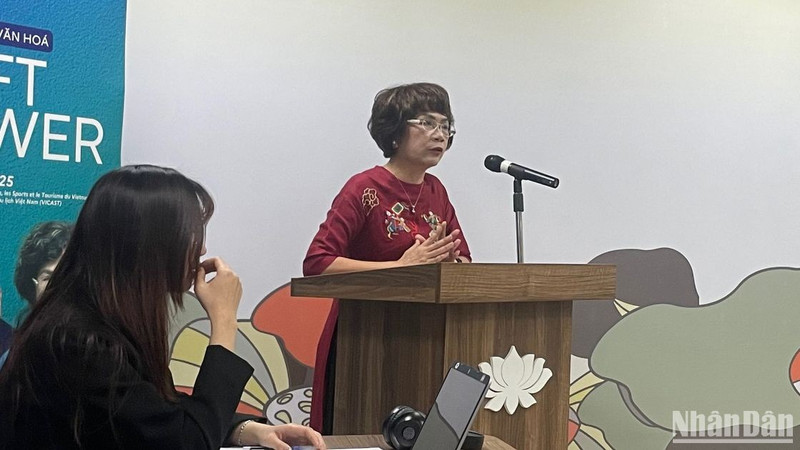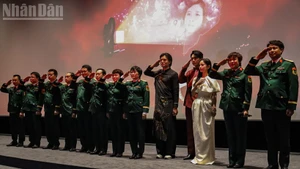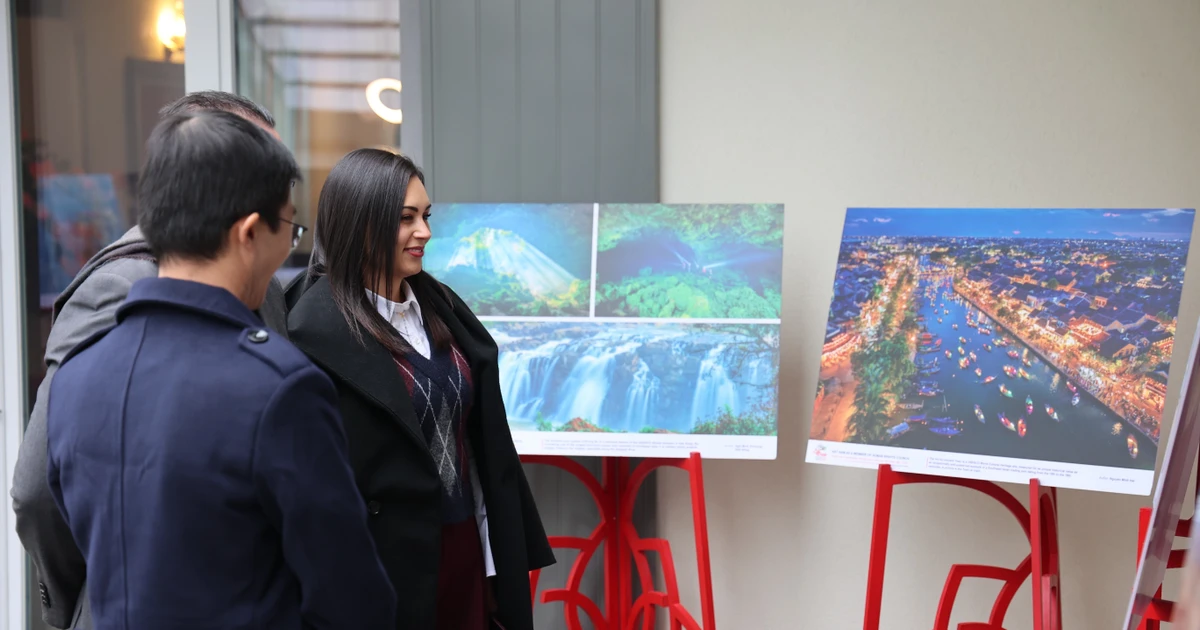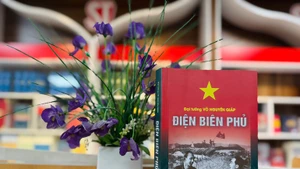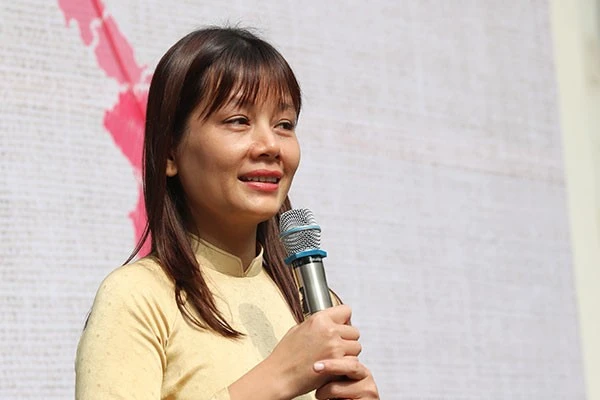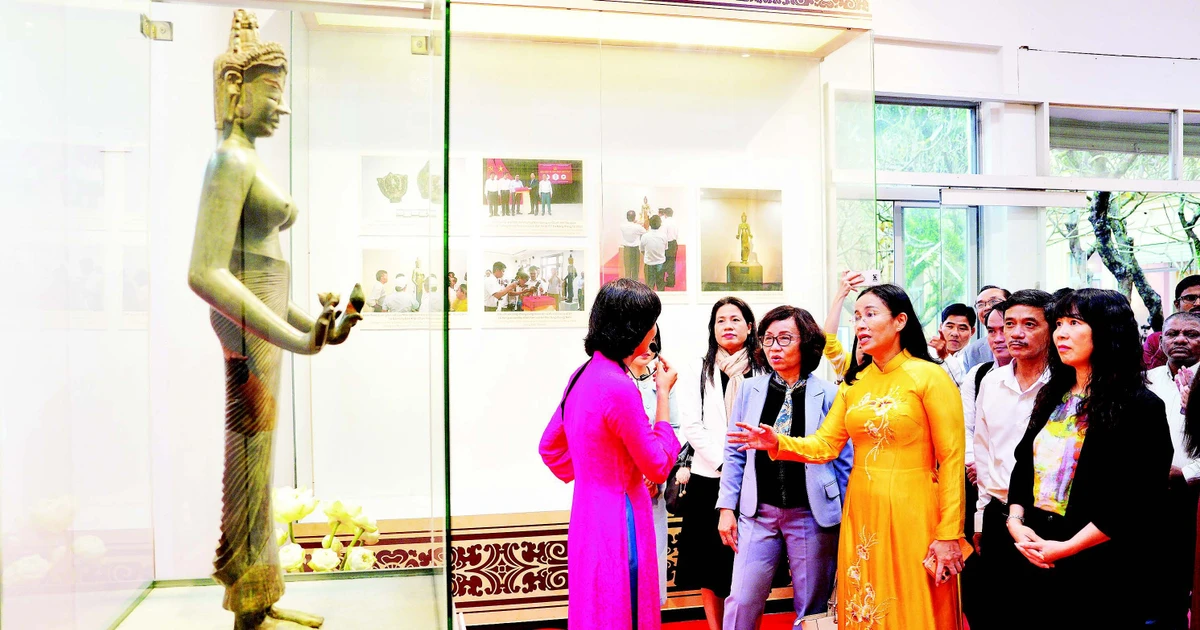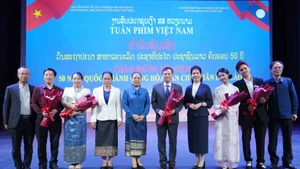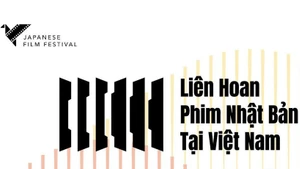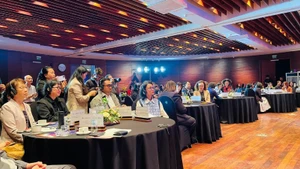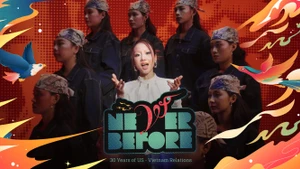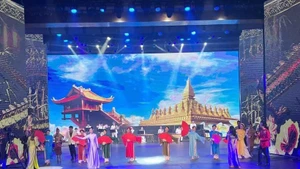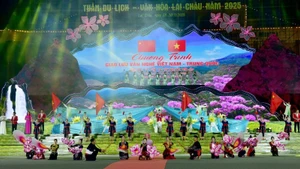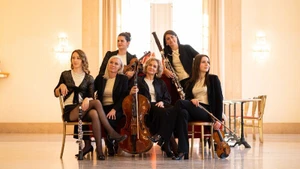In her opening remarks, Dr Nguyen Thi Thu Phuong stated that cultural soft power is part of the broader spectrum of hard power, comprehensive power, and smart power. These elements are closely related and play a core role in enhancing a country's position in international relations, applicable to both developed and developing nations.
Agreeing with this viewpoint, Mr Franck Bolgiani, Director of the French Institute in Vietnam, said that the dialogue was part of a series of seminars and discussions organised by the French Institute. “We hope to accompany Vietnam in promoting cooperation and creativity in fields such as animation, books, comics, and live performances,” he shared.
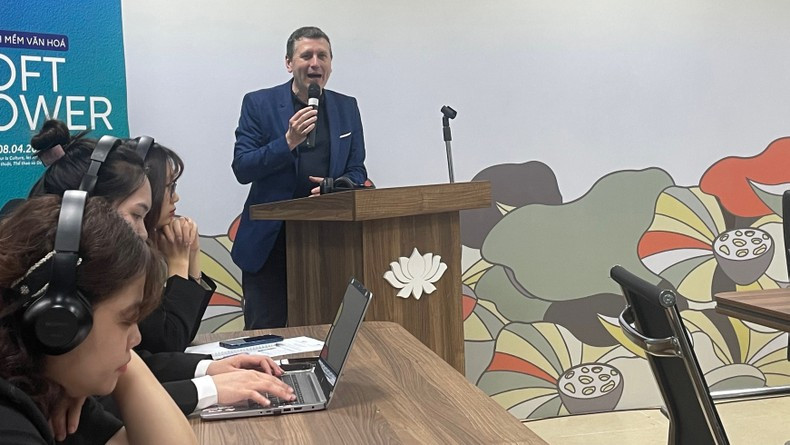 |
| Writer and researcher Frederic Martel also contributed insights on cultural soft power during the talk. |
In addition to Dr Nguyen Thi Thu Phuong, the panel of speakers included Mr Frederic Martel, a writer and university lecturer, and Dr Bui Nguyen Bao from KnB Enhance Centre for MC Training and Skills, who moderated the program.
Major countries such as the United States, the United Kingdom, and France have long asserted their influence through cultural soft power, while Asian countries such as Japan, South Korea, and China are actively expanding their cultural influence. Vietnam, with its rich and diverse culture, holds significant potential to develop its cultural soft power. However, the country also faces many challenges in receiving and preserving cultural identity amidst integration.
The “Dialogue on Cultural Soft Power” aimed to highlight the importance of cultural soft power in building national image and promoting socio-economic development. Additionally, the discussion offered opportunities for experts, researchers, and policymakers to exchange views and experiences in harnessing cultural soft power.
The speakers also discussed specific strategies to exploit and promote existing cultural resources to enhance national competitiveness and international integration. It is hoped that these insights will provide necessary solutions and policies to foster the development of the cultural industry, thereby contributing to the preservation and promotion of national cultural identity in the context of globalisation.
